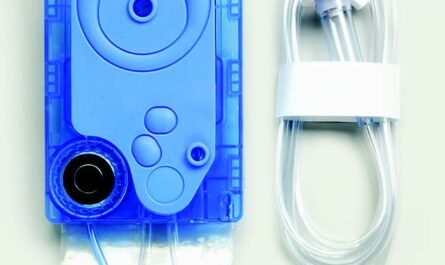
Research Antibodies: Essential Tools for Scientific Discovery
Antibodies are specialized proteins produced by the immune system that help identify and neutralize foreign objects like bacteria and viruses. However, antibodies serve a far greater purpose beyond the human body – they have transformed biomedical research and advanced our understanding of human biology and disease. Known as research antibodies, these versatile detection tools are now essential lab components driving innovation across many scientific domains.
Origins and Development of Research Antibodies
The use of antibodies in research can be traced back to the early 20th century when scientists first realized their potential as biomarkers. Early innovators like Paul Ehrlich pioneered techniques to produce and utilize antibodies outside the human immune system. However, it was not until the 1970s that methods were developed to reliably produce monoclonal antibodies – antibodies derived from a single parental cell that recognize only one epitope. This breakthrough kickstarted the modern monoclonal antibody era and marked a turning point for biomedical science.
Since then, research antibodies have advanced tremendously. Advances in cloning and recombinant DNA technologies now enable the precise engineering and humanization of antibodies for enhanced targeting and lower immunogenicity. Large-scale production also allows for the commercial development and widespread availability of highly specific research-grade antibodies. Today, various antibody types and formats exist to suit different research applications.
Application of Research Antibodies Across Science
Immunohistochemistry and Immunofluorescence – Research antibodies serve as invaluable detection tools in histology and cellular imaging techniques. By targeting antigen biomarkers, antibodies allow visualization of protein expression patterns, subcellular localization studies and co-localization experiments.
Western Blotting – In protein analysis, antibodies are used to detect target proteins separated by gel electrophoresis. This quantitative technique is foundational to studying changes in protein expression levels.
Flow Cytometry – Antibodies allow multidimensional profiling and purification of cells based on surface marker expression. Flow cytometry powered by research antibodies is central to immunology, stem cell biology and cancer research.
ELISA/EIA – Enzyme-linked immunosorbent assay uses antibodies to detect and quantify proteins in liquid samples. This high-throughput method is applied to studies of biomarker quantification, drug and toxin screening, and serological immune response analysis.
Immunoprecipitation – Antibodies enable the targeted isolation of protein complexes and associated biomolecules from cell and tissue lysates. This technique aids proteomics, studying protein-protein interactions and post-translational modifications.
Research antibodies penetrate almost every discipline from neuroscience to plant biology. Some key areas they enable include disease modeling, vaccine and therapeutic development, stem cell and genetic engineering research, and molecular pathology studies.
Choosing the Right Research Antibody
With the vast array of research antibody options, careful selection is important to ensure experimental validity and reproducibility. Key criteria include antigen specificity, host species, antibody type or format, clone, and validation history. Researchers should source antibodies from reputable commercial vendors with proven performance records.
Antibody specificity depends on the antigen epitope targeted. Monoclonal antibodies tend to be highly specific while polyclonal antibodies recognize multiple epitopes but provide broader coverage. The host species like mouse, rabbit or goat determines cross-reactivity potential with other proteins from that species.
Antibody format such as monoclonal, polyclonal, recombinant, bispecific also impacts intended experimental use. Validation of correct molecular weight bands, titration curves and lack of non-specific binding provides quality control assurance. Published citations and vendor datasheets aid in assessing prior antibody validation work.
Challenges with Antibody Reproducibility
While research antibodies have enabled tremendous scientific advances, questions have arisen regarding reproducibility between studies using different antibodies. Issues stem from antibody affinity changes over time, variable antigen retrieval conditions, differential tissue processing techniques and more. Even antibodies against the same target protein can give inconsistent or non-overlapping results between studies and commercial suppliers.
Better rigor in antibody validation, standardizing experimental protocols and reporting comprehensive characterization details can address reproducibility challenges to some degree. Moving forward, the biomedical research community must prioritize initiatives to improve antibody lot-to-lot consistency, validate reference materials and minimize inter-laboratory variability related to antibody performance. Only then can we fulfill the full promise of research antibodies as transformative tools translating scientific discovery into real-world medical benefit.
In summary, research antibodies have evolved into indispensable laboratory utilities without which modern life science could not function. As versatile detection molecules, they empower techniques across all areas of bioscience research driving fundamental insights and translational progress. With continued optimization and standardization efforts, antibodies will remain pivotal instruments enabling new discoveries and diagnostic/therapeutic innovations to better understand and treat human disease.
*Note:
- Source: Coherent Market Insights, Public sources, Desk research
- We have leveraged AI tools to mine information and compile it


